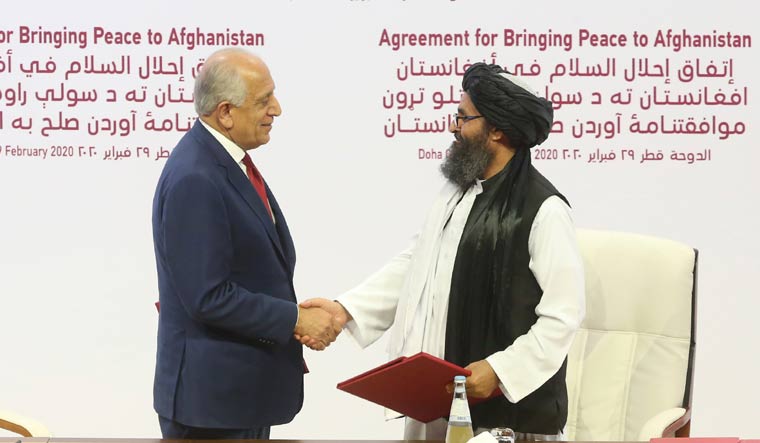Three superpowers in three centuries—that's going to be Afghanistan's historical track record. Or shall we say war record?
In the 19th century, they defeated the British, the mightiest empire then, to the last man. Well, one less, to be precise. One man, a doctor, in that army that had gone to conquer Afghanistan returned alive in the 1830s.
In the 20th century, they defeated the Soviet Union, the bear who had come over the mountains as they say, and went back over the mountain.
In the 21st century, they have repulsed the Americans.
All through the three centuries, or in all the conflicts that Afghanistan was engaged with the biggest powers, India was an interested party.
In the 19th century, the entire army had gone from India. It was an army composed mostly of Indians. It was Indian blood that was spilled on the Hindukush.
In the 20th century, India was a concerned party. When the Soviets invaded Afghanistan in 1979, India was a friend of the invaders. Yet, among the Kremlin's friends, only the prime minister of India had the guts to tell the Soviets that it was an unwise move. When asked how the Soviets could get out of Afghanistan, then Prime Minister Indira Gandhi is said to have told Premier Alexei Kosygin: “Go back the same way as you came in.”
In the 21st century India was, and is, an anxious party. India was anxious when George Bush Jr ordered bombing of Kabul and the Tora Bora mountains where the Americans thought Osama bin Laden was hiding. India was anxious how the bombing campaign was going.
India had several anxieties. As soon as the Americans ordered the bombing, Pakistan which had been hand in glove with the Taliban, joined the American war effort. India felt sidelined for a short while. But once the US realised that Pakistan, which had created and nurtured the Taliban, was running with the hare and hunting with the hound, it turned to India, Russia and their allies in the Afghan civil war. Thus the Northern Alliance which had been fighting the Taliban all along was allowed to take control of Kabul.
The Kabul regimes since then have been basically creations of peace deals among the Afghan groups. All of them had the overt or silent consent of all parties, except the Taliban.
Now the Taliban, too, has been brought in. With that come India's fears. Will they be deal makers or deal breakers?
For all we know, it may take another century to get the answer.
India never believed in “moderate Taliban” which was cited as an oxymoron. However, despite India's pious wishes, the Taliban has been wresting back control over much of Afghanistan and emerging as a parallel regime.
Saturday's deal is indeed a big challenge for India. New Delhi has been avoiding any contact with the Taliban which, it holds, is a creation of Pakistan. India has now reluctantly gone along with the peace deal, though resisted the temptation of welcoming the deal.
India’s anxieties are essentially threefold. One, with a Taliban-held Afghanistan guaranteeing a strategic backyard, will Pakistan be tempted to fuel more insurgencies in the east.
Two, will a Taliban-controlled Afghanistan block all the strategic and economic gateways that India had tried to open with Central Asia.
Three, would the gateways be opened to China?



